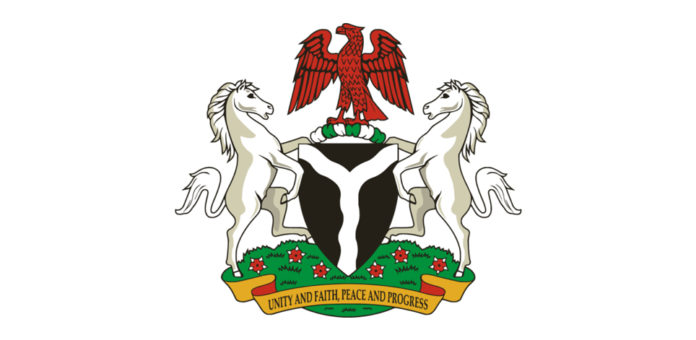By Taofeek Tope Akorede
Nigeria, often referred to as the “Giant of Africa,” stands at the intersection of immense potential and persistent challenges. As the continent’s largest economy, Nigeria is also burdened with severe socio-economic issues that have hampered growth. According to the World Bank, Nigeria’s poverty rate was projected to reach 38.9% in 2023, with approximately 87 million Nigerians living below the poverty line, placing Nigeria as the country with the second-largest population in poverty globally, after India. This landscape is marked by widespread unemployment, inadequate infrastructure, and a struggling education system. Youth unemployment is particularly alarming, as millions of young Nigerians enter the labor market each year with limited job prospects.
Political instability, corruption, and heavy reliance on oil have further complicated these issues, exposing Nigeria to global market fluctuations. However, in recognition of these challenges, the Federal Government has undertaken a series of ambitious socio-economic initiatives aimed at reducing poverty, boosting employment, and empowering Nigerian citizens.
Since the administration change in May 2023, Nigeria has pursued significant reforms to stabilize the economy and promote growth. President Bola Ahmed Tinubu, who took office on May 29, 2023, has consistently emphasized economic revitalization and national security. To address these pressing issues, the Federal Government launched the following initiatives:
Student Loan Scheme
The Federal Government of Nigeria’s Student Loan Initiative seeks to make higher education accessible by offering interest-free loans to eligible students, helping to dismantle financial barriers to learning. This initiative aligns with the government’s goal of expanding educational access and opportunities for all Nigerians, empowering students to pursue their academic aspirations. As at the time of filing this feature, the NELDFUND has reported disbursements of ₦2.9 billion in interest-free student loans across Nigeria’s tertiary institutions, with monthly support provided for 27,667 students.
Consumer Credit Corporation (CREDICORP)
The Nigerian Consumer Credit Corporation (CREDICORP), a Development Finance Institution established by the Federal Government, aims to democratize access to consumer credit for Nigeria’s working population.
National Youth Talent Export Programme (NATEP)
The National Youth Talent Export Programme is dedicated to building a sustainable talent pipeline by nurturing skills and promoting service excellence. Using advanced technology and global partnerships, NATEP seeks to elevate Nigerian talents onto the global stage.
Presidential Compressed Natural Gas (CNG) Initiative
The Presidential CNG Initiative, part of President Bola Ahmed Tinubu’s palliative measures, is designed to ease the economic impact of fuel subsidy removal. This initiative aims to provide relief to citizens during this transitional period, helping to address economic challenges.
Investment in Digital and Creative Enterprises (iDICE) Program
The iDICE program, implemented by the Bank of Industry, fosters growth in Nigeria’s tech and creative sectors, empowering Nigerian youth aged 15-35. By equipping young people with valuable skills, iDICE enhances employability, drives innovation, and supports entrepreneurship. Co-funded by the African Development Bank (AFDB), Agence française de développement (AFD), Islamic Development Bank (IsDB), and private investors, iDICE aims to:
- Train and certify 175,000 youth in ICT skills.
- Enhance the capacity of at least 75 Enterprise Support Organizations while providing coaching and mentorship to small businesses.
- Create over 800,000 direct and indirect jobs nationwide.
- Secure additional funding for early-stage tech and creative ventures.
- Upgrade national data centers and sandbox infrastructure.
- Establish a supportive regulatory framework for business growth.
- Provide accessible funding options for entrepreneurs.
A core focus of iDICE is bridging gender gaps in STEM education, entrepreneurship, and access to venture capital. Over its five-year span, iDICE plans to invest in over 80,000 women through skill development, mentorship, and startup funding, fostering inclusivity in Nigeria’s digital and creative economies.
Micro and Small Business Loans
The Micro Enterprise Directorate provides low-interest lending solutions tailored to micro-enterprises across the informal, semi-formal, and formal sectors. Using intermediary channels, this directorate ensures efficient last-mile delivery, broad reach, and program sustainability. Additionally, by expanding the Bank of Industry’s engagement with the micro-enterprise sector, the directorate offers innovative financial and non-financial services to target clients. These initiatives contribute to the Sustainable Development Goals, including poverty reduction, hunger alleviation, quality education, gender equality, decent work creation, and industry transformation.
Nigerian Youth Academy (NiYA)
The Nigerian Youth Academy (NiYA) is an extensive online and mobile learning ecosystem that connects Nigerian youth with experts, professors, institutions, and organizations. NiYA is building the largest online learning resource specifically for Nigerian youth, offering:
- Connections to employers for job and career opportunities.
- A digital community for learners, mentors, and instructors.
- Platforms for talent showcase and skill-based hiring.
- Information on upcoming youth programs and funding opportunities.
- Lifetime access to essential resources and success information.
- Engagement opportunities for grassroots youth through community programs.
NiYA is an inclusive platform, welcoming all Nigerian youth regardless of background, education, or region. Built by Nigerian youth for Nigerian youth, NiYA supports skill development and positions young Nigerians to succeed.
NDDC Internship Scheme for Niger Delta Youth
The Niger Delta Youth Internship Scheme is a transformative program aimed at bridging the gap between education and employment by offering 12-month internships to 10,000 young people across diverse industries. Focused on sectors with high growth potential in the region, this initiative helps build a skilled workforce equipped to meet the challenges of the future.
The Federal Government’s efforts to combat poverty and unemployment through initiatives like the Student Loan Scheme, iDICE, and the Nigerian Youth Academy demonstrate a commitment to reshaping Nigeria’s socio-economic landscape. With these programs, the government not only provides immediate support but also lays the foundation for long-term, sustainable growth by investing in education, skill development, and infrastructure. While challenges remain, these initiatives represent a significant step toward empowering Nigerian youth and fostering a resilient economy. If these programs are consistently supported and scaled, Nigeria’s “Giant of Africa” status will reflect not just its size, but its progress and prosperity.
Written by TAOFEEK TOPE AKOREDE (Akorede is an IT student of Mass Communication from the Kwara State University, Ilorin).
Edited by
Moses Oyelade, AD (I&PR),
FIC, IBADAN.






